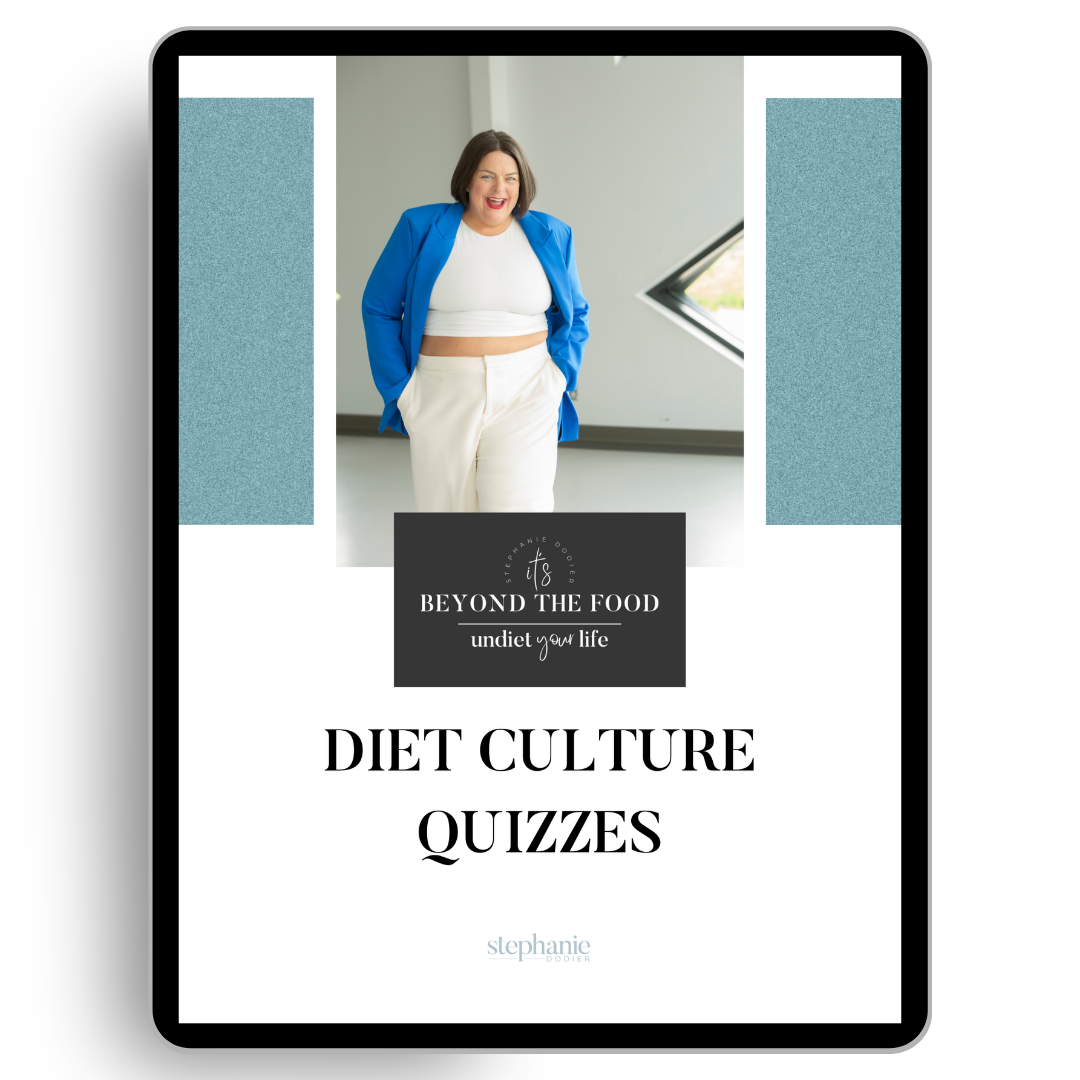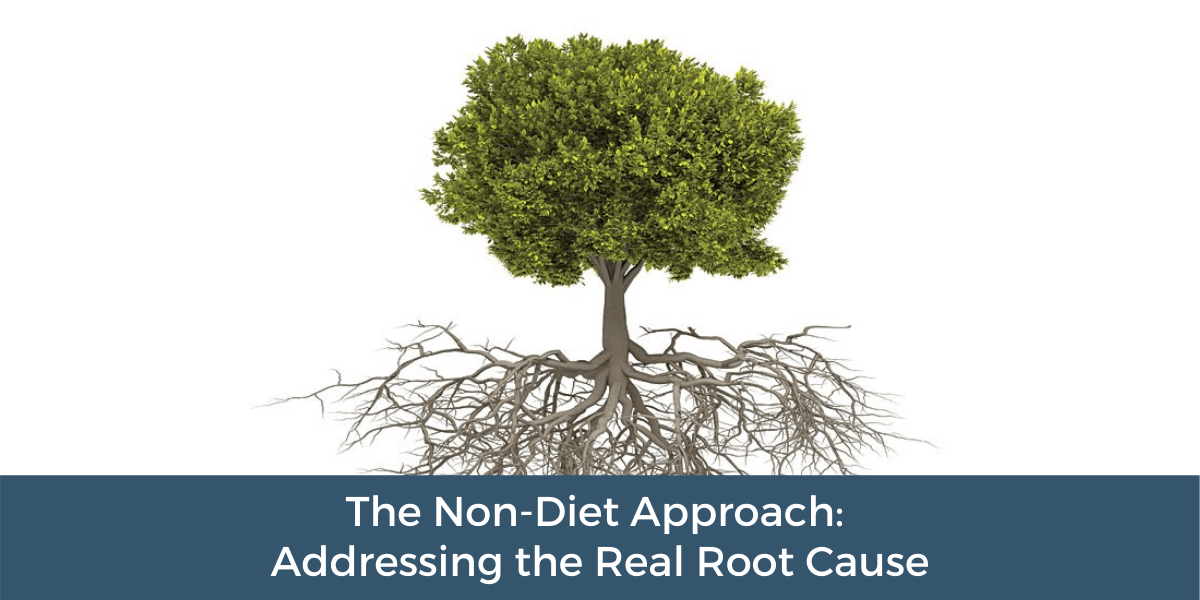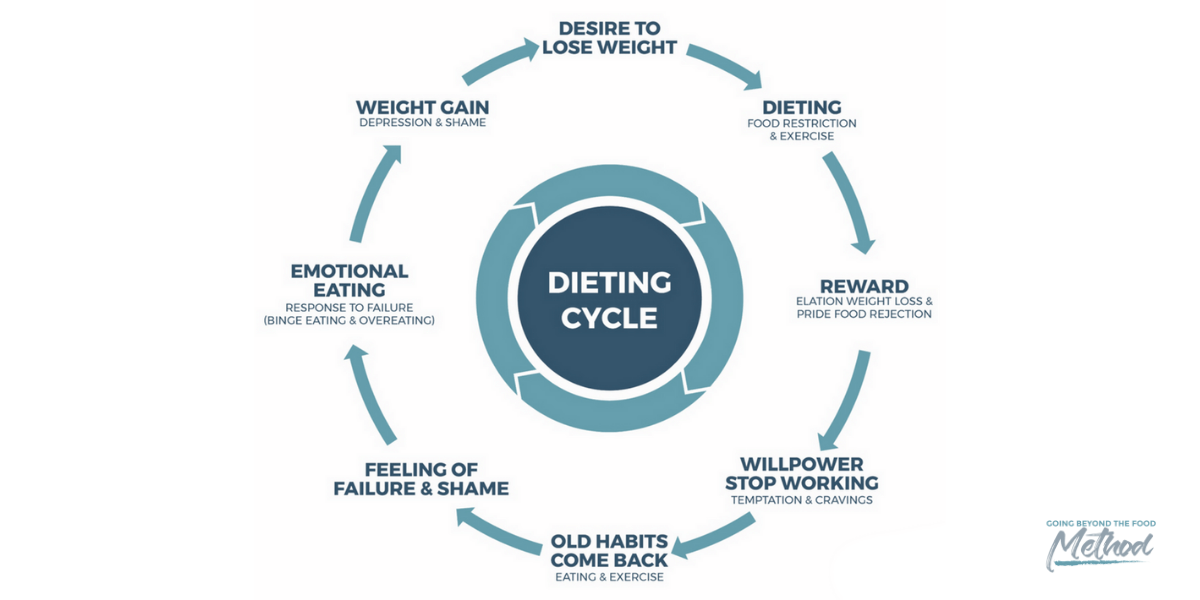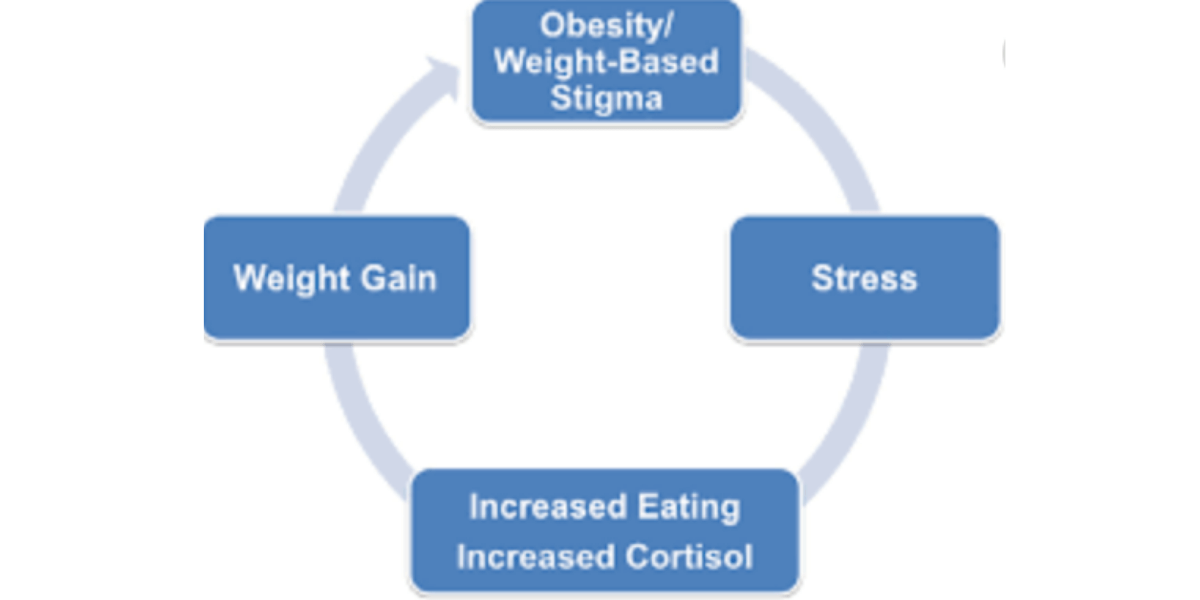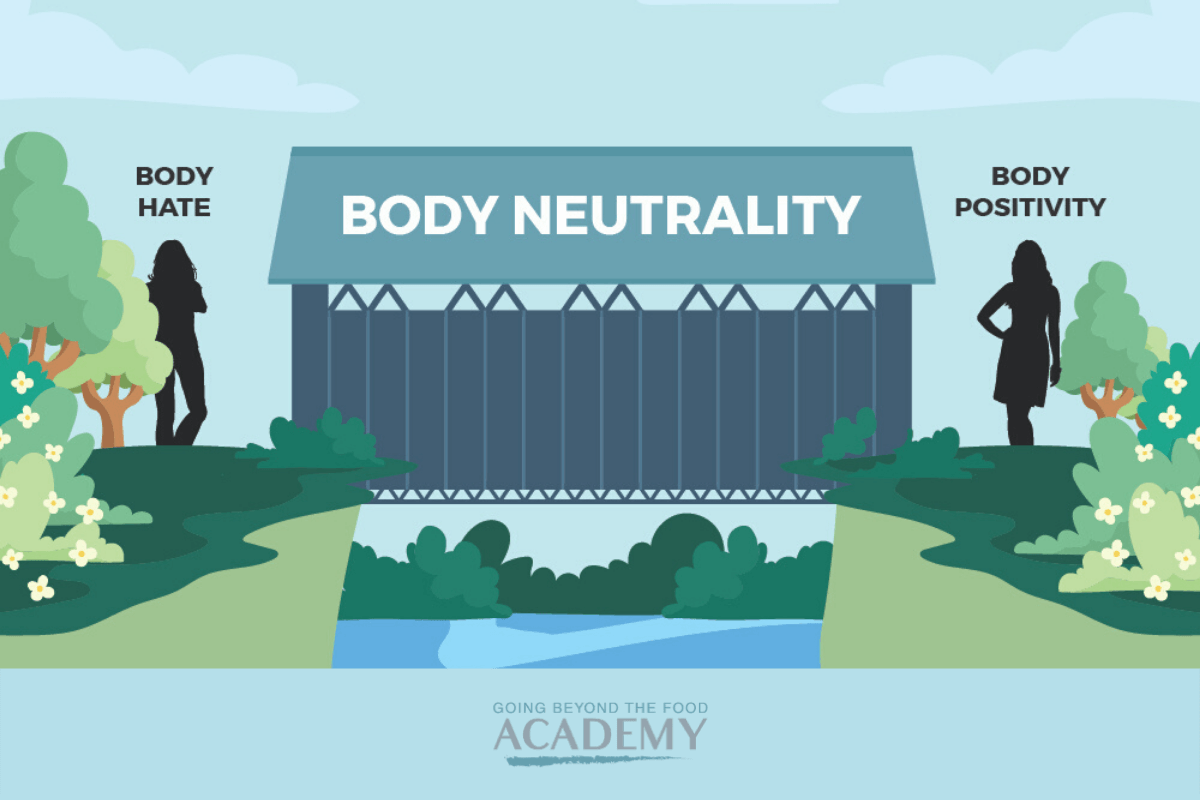Intuitive eating is increasingly becoming popular among women for a number of good reasons. For one, it’s been proven to lead to positive health outcomes. Also, it’s an approach to eating that puts you in control of your eating behavior. You’re the expert of your body and the boss of you.
But how do you start eating intuitively? How do you make it work? This blog post aims to answer these questions by introducing you to the 10 key principles of intuitive eating that Evelyn Tribole developed. Here, I also show you how to get started in five easy steps. This guide is virtually intuitive eating made simple for you!

Here’s what you’ll learn from this blog post:
10 Key Principles of Intuitive Eating
Research–Based Health Benefits
Intuitive Eating and Weight Loss
What’s the difference Between Mindful Eating and Intuitive Eating?
Intuitive Eating Made Simple: How to Get Started
Intuitive Eating Free Resources
Ready to learn how to get started with intuitive eating and make it work? Let’s dive in!
What is Intuitive Eating?
When people ask me what eating intuitively means, this is the definition that usually comes to mind: “a self-care eating framework that uses your body’s internal cues of hunger, fullness, and satisfaction to guide your eating behavior.” It’s literally trusting your gut! Note that this intuitive eating definition emphasizes self-care and not weight loss.
Intuitive eating an evidence-based approach to eating that allows you to be the expert of your own body. This approach enables you to develop a healthy relationship with food and your body. It teaches you to trust your ability to meet your own needs, distinguish between physical and emotional hunger, and ultimately develop body wisdom.
Eating Intuitively is well –research and proven health framework supported by more than 100 studies as of 2019.
10 Key Principles of Intuitive Eating
So how do you make intuitive eating a part of your life? Here are the 10 key principles of intuitive eating that will guide your journey towards a natural way of eating.
1. Reject the diet mentality.
Get rid of all the diet books, articles, videos, and other materials that give you the false hope that you’ll lose weight easily, quickly, and permanently. Scoff at the lies that try to convince you that you’re a failure or something is broken in you just because another diet has failed you and you gained back the weight that you lost. Never allow yourself to be deceived again.
2. Honor your hunger.
Keep your body well-nourished and provide it with enough calories to keep it energized. Depriving your body of food can kick the drive to overeat into high gear. On the other hand, honoring your hunger lays the foundation for learning to trust your body’s messages.
3. Make peace with food.
Allow yourself to eat without any conditions. Telling yourself that you can’t eat a particular food because it’s “bad” for you will do you more harm than good. It can lead to an intense feeling of deprivation that can result in uncontrollable cravings and binge eating. And if you give into the “temptation” to eat what you think is “bad” for you, you’ll experience intense guilt. You don’t need any of that B.S.! Stop labelling food as good or bad and instead make peace with it.
4. Challenge the food police.
When a voice inside your head says you’re “good” for minding your calories or “bad because you ate some French fries, tell it to shut up! The diet culture is insidious. It deploys the food police into your psyche. Every time you allow yourself to enjoy the pleasure of eating, the police induce guilt and the fear of weight gain. It may also call you unsavory names. If you want to make eating intuitively a part of your life, you have to drive the food police away and tell it to never come back!
5. Respect your fullness.
Be aware of your body signals that tell you that you are no longer hungry. When you feel comfortably full, pause in the middle of eating and ask yourself:
- How does the food taste?
- How full are you?
6. Discover the satisfaction factor.
You’re meant to eat, not just to live, but also to enjoy the pleasure of eating. The ability to enjoy the experience of eating is a gift. Sadly, because the diet culture pressures us to fit into the thin ideal, we often forgo this wonderful gift. The truth is the pleasure of eating is a powerful force that will help you feel satisfied sooner. Thus, the more you enjoy the experience of eating, the less food it takes to satisfy you.
7. Honor your feelings without using food.
There are ways to comfort yourself and resolve your issues other than food. We all experience uncomfortable emotions throughout our lives. While food provides temporary relief, it won’t fix the underlying problems that cause uncomfortable emotions. If you eat to relieve emotional discomfort, you’ll only feel worse if you don’t deal with the source of the emotion.
8. Respect your body.
Let’s say you had a shoe size of 9. Would you waste your time wishing you could wear a size 7 shoe? It just doesn’t make sense, does it? Well, the same is true for dress sizes. It doesn’t make sense to try to fit into a size 2 dress if you weren’t born with the genetic makeup for that size! Every person has a genetically predetermined body size and shape. Stop trying to fit into the thin ideal that the diet culture worships and start respecting your body. You’re perfect just the way you are.
9. Exercise—feel the difference.
You don’t have to spend countless hours at the gym and do a particular type of workout. You can just go outside for a brisk walk or turn on your favourite dance playlist and bust some moves! Just get your body moving. And move your focus from the calorie-burning effect of exercise to how you feel while moving your body. Exercise releases endorphins, your body’s “feel-good” hormones. It also energizes you. So make feeling good your motivation to exercise rather than losing weight.
10. Honor your health.
Choose foods that support your health and please your taste buds. But remember that you don’t have to eat a perfect diet to stay healthy. What you eat consistently over time is what truly matters. Aim for progress, not perfection.
But is intuitive eating really healthy?
Research–Based Health Benefits

Intuitive eating is not a diet fad. It is an approach to eating that’s backed by scientific research. In 2014, an intuitive eating research study involving 1,600 middle-aged women showed strong links between eating intuitively and having a lower body mass index and positive emotional health.
I’ve written a complete guide that walks you thru all the evidence-based health benefits of intuitive eating.
- Improved cholesterol levels
- Lower stress levels
- Increased energy
- Improved mental health
- Lower eating disorder occurrence
- Improved body awareness
- Enhanced self-esteem
- Improved level of happiness
Intuitive Eating and Weight Loss
Weight loss is the be-all and end-all of all diet and exercise programs, thanks to diet culture. The end goal of eating intuitively is not weight loss, period.
Rather, it is developing a healthy relationship with food and one’s body. This healthy relationship then leads to optimum physical and mental health. In other words, when you eat intuitively, you chase health rather than weight loss.
Weight loss may be one of the many outcomes of becoming an intuitive eater as much as it may not be. Your weight may also remain stable.
Caution: If anyone attempts to sell intuitive eating as a way for you to lose weight… run the other way. Eating intuitively isn’t compatible with intentional weight loss. Losing weight intentionally will prevent you from attuning to your innate eating cues and instead keep you focused on controlling how much you eat and what food you eat.
You can read more in this article, Intuitive Eating Before and After: My Story, where I share my personal journey of becoming an intuitive eater.
What’s the difference Between Mindful Eating and Intuitive Eating?
You might be wondering if mindful eating is the same as intuitive eating. Certainly, the answer is no, they’re distinct from each other. Mindful eating is part of eating intuitively.
Mindful eating is being fully present while you eat. It’s being present in your entire eating experience on purpose.
On the other hand, intuitive eating is an entire eating framework and philosophy. It includes physical activities, how you engage with your body image, and gentle nutrition. Mindful eating is an important component of intuitive eating, which is not limited to simply being mindful.
Intuitive Eating Made Simple: How to Get Started
Eating intuitively in 5 easy steps is possible! You can start your intuitive eating journey and build a healthier relationship with food following the next steps:
Share this Image On Your Site
Step 1: Understand the diet culture and your power to choose.
The diet culture worships the thin ideal and equates thinness with good health and moral virtue. It’s prevalent in the world today. But you don’t have to be a part of it. You have a choice!
Step 2: Reject the diet culture.
Refuse to be controlled by this oppressive culture. Unfollow social media accounts that use the weight loss lingo and uphold dieting myths. Throw out the books and delete videos, apps, and e-books that support the diet culture. Beware of diet-culture programs that masquerade as wellness programs.
Step 3: Be present with your food.
Practice mindful eating. First, turn off all distractions such as your phone and the television. Then, use your five senses to enjoy the experience of eating.
Step 4: Shift from external eating cues to your body’s internal eating cues.
Stop counting calories and macros. Instead of following dieting rules, use your body’s innate hunger and fullness cues to guide your eating behavior.
Step 5: Seek satisfaction from food.
Eat foods that you like. Get attuned to your body and notice how certain foods make you feel. Eat more of those that make you feel good.
Intuitive Eating Free Resources
Want to have a better relationship with food and become healthier in the process? I’ve put together some free resources to help you begin your intuitive eating journey:
1. Is intuitive eating right for you?
2. Get Started with our free intuitive eating guide
3. Listen to our Intuitive Eating podcast episodes on the Going Beyond the Food Show.
4. Get some tips and more information from my Intuitive eating blog.



